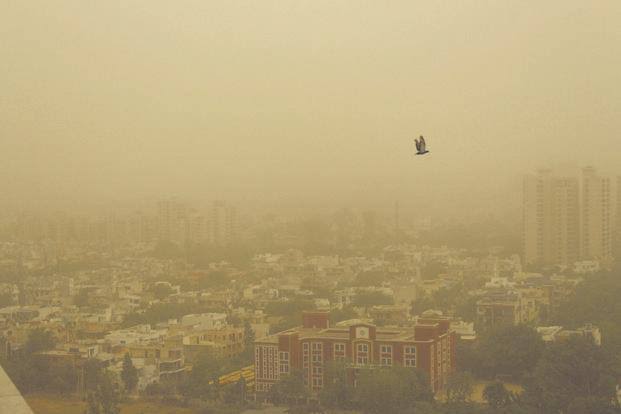

Unlock effect: Mumbai’s air quality is degrading fast
On Friday, the Air Quality Index (AQI) of Mumbai stood at 118 -- worst since March 21. A consistent thin layer of smog in the city’s skyline is an indicator enough to say that the air quality of India’s financial capital is worsening.

As the lockdown effect of all these months fades gradually, Mumbai’s air quality has started showing signs of heavy degradation.
On Friday Mumbai recorded its worst air since lockdown
Read More: https://t.co/dT1028ibxo#Climate, Mumbai News, Air Pollution, COVID-19, Public Releases, Weather pic.twitter.com/x9PNWkeCut
— Public Releases (@PublicReleases) October 10, 2020
On Friday, the Air Quality Index (AQI) of Mumbai stood at 118 — worst since March 21. A consistent thin layer of smog in the city’s skyline is an indicator enough to say that the air quality of India’s financial capital is worsening.
The city’s AQI has been under 50 since the lockdown began in March. The city recorded its best AQI for this year at 12 on June 30. The AQI has ranged between 17 and 29 in April and May. On September 6, the AQI was recorded at 100, the highest until last month for the period since March 21.
This year’s highest pollution levels were recorded a week before the lockdown was first implemented: on March 17, the AQI was 272 (poor); on March 18 it was at 172 (moderate), and it was at 130 (moderate) on March 19.
Officials say that increase in day temperature and lack of rainfall for a week has contributed to an increase in the AQI levels this month. For the past week, the city’s AQI was recorded in the range of 70 to 100.
An AQI up to 50 is considered good, 51 to 100 satisfactory, and 101 to 200 as moderate. An AQI between 201 and 300 is considered poor, 301 and 400 very poor, and 401 and 500 severe. If the AQI exceeds 500, it is considered a severe-plus category.
Also read: Local trains for all by mid-October, says Aaditya Thackeray
On Friday, Andheri recorded the worst air quality in the city with PM 2.5 AQI of 156, followed by Malad at 152 and Chembur (149). Navi recorded AQI at 186. Of the 10 locations where SAFAR records AQI, BKC has been non-functioning for more than a week.
Last week, Environment, Forest and Climate Change Minsiter, Prakash Javadekar chaired a review meeting on the situation of air pollution which has been a recurrent environmental concern in winter season in Northern India especially in Delhi NCR region over last few years. Five states Delhi, Uttar Pradesh, Haryana, Rajasthan and Punjab particpated in the meeting.
The minister emphasised that there are several other factors that contribute to air pollution other than stubble burning which include constructions and demolition waste, poor waste management, unpaved roads and dust management, Bio mass burning, etc.
The minister informed that several measures have been taken by the centre like BS VI norms have been introduced; power plants of Badarpur have Sonipat have been closed. He stated that Eastern and Western Peripheral Expressways have helped massively in reducing vehicular air pollution in Delhi and nearly 60,000 vehicles are diverted from Delhi which earlier used to go through Delhi.


